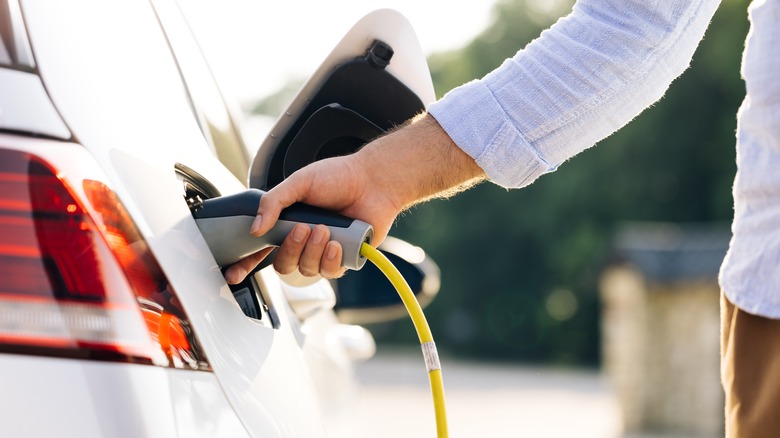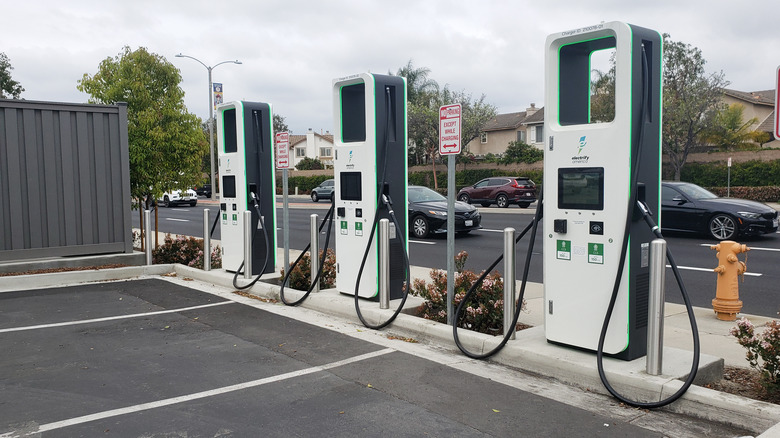Electric Vehicles Will Eventually Have A Prominent Spot At Fast Food Chains
As driving culture all over the world makes the shift to electric vehicles, there are lingering concerns about how to recharge them. Despite it being a relatively new trend, electric charging stations aren't dwindling far behind gas stations, but many of these are low-level slow chargers or only work for certain types of vehicles. The real issue lies, however, with the fact that most of these charging stations are clustered near urban areas on the coast. There are huge charging deserts across the Midwest, particularly in rural areas. "That really creates a lot of barriers that I think that people don't realize," electric car driver Justin McCormick told 13abc.com. Many people see EVs as impractical for anything other than day-to-day local use, and wouldn't trust them for long trips.
EV advocates are trying to change that, and they've found an unlikely advocate in fast food restaurants, which are ready to aid in this issue, albeit some quicker than others. In January 2023, Subway announced plans to integrate charging stations, first in small quantities then eventually expanding to larger facilities, dubbed the "Subway Oasis." Taco Bell is currently doing the same thing, though only in California for the time being. This could prove especially useful and profitable due to the large number of electric vehicles in the state. Furthermore, Starbucks announced in May 2022 it will install stations in five states from Seattle to Denver.
Numerous restaurants are getting ahead of the curve
It will take a while for electric cars to account for the majority of vehicles on the road. But with 17 million new cars produced annually, the process is well underway. Originally seen as luxury items for a select few, the increase in affordable EVs, including family cars, trucks, and SUVs, as well as stubbornly high gasoline prices, has meant that the market is expanding. The push to rebrand EVs as something that fits into every American's lifestyle works hand-in-hand with something that's already part of most Americans' daily routine: fast food restaurants.
So why are fast food establishments joining the race to bring about this integration now? They have a variety of motives. According to Subway's chief operating and insights officer Mike Kappitt, (via QRS Magazine) the chain plans to up its game, providing restrooms, Wi-Fi, playgrounds, and green spaces. No doubt as people wait for their car to charge, they'll stop in for a bite to eat. The fast food companies will also likely charge for the electricity: about $10 for an hour's charge, which should get most vehicles up to about 80%. There also seems to be a real desire to help the environment and make EV charging available to most Americans. Subway restaurants spread across the nation, and Kappitt says it can use its "unmatched footprint" to connect those broad empty spaces that form the charging desert.

